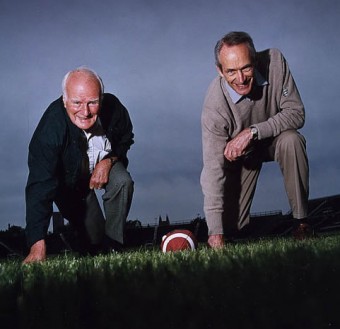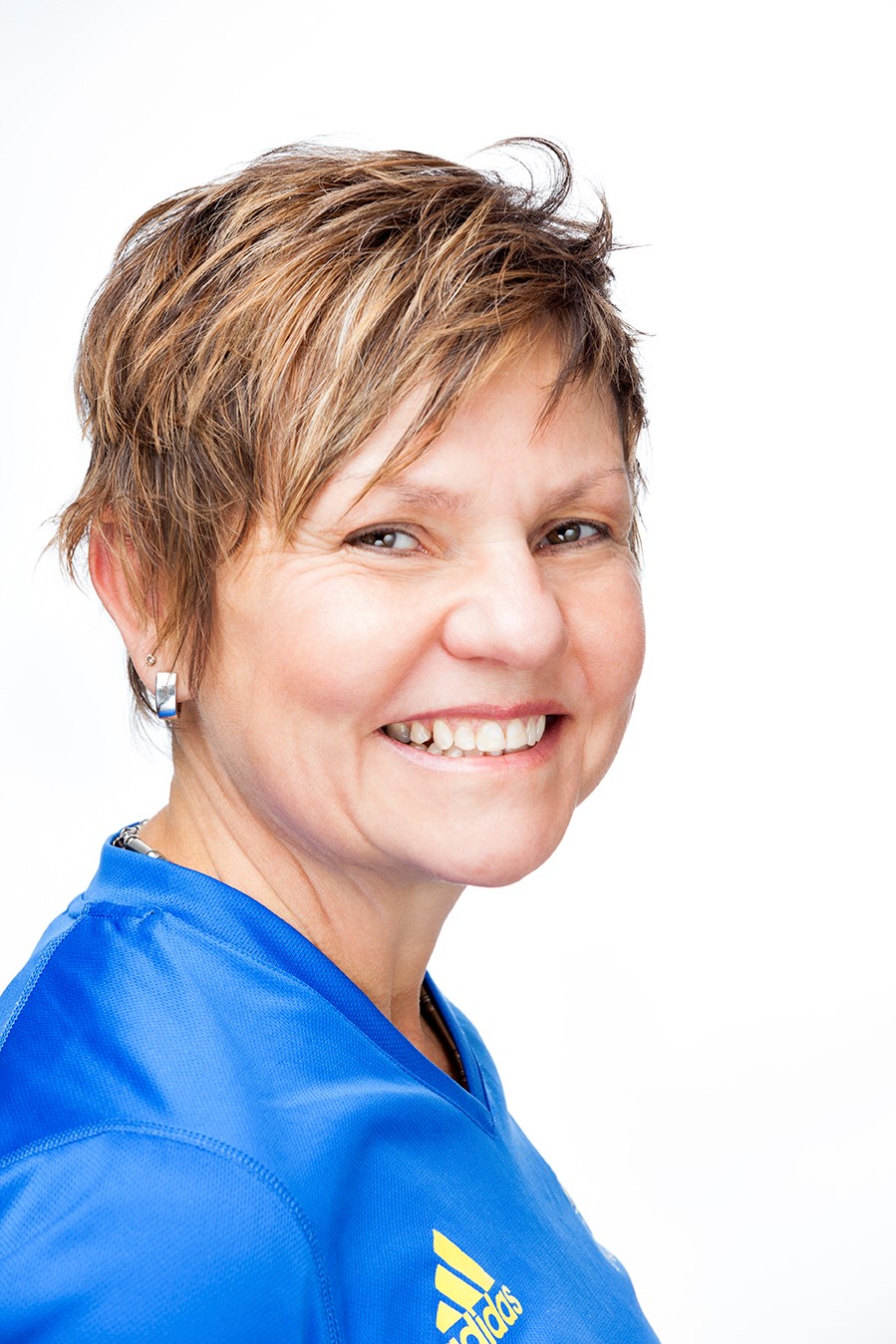In 1945, Fraser Mustard (MD 1953) appeared in the social pages of the Globe and Mail wearing John Evans’s (MD 1952) tuxedo. The photo was taken at a military cadets’ function at the University of Toronto Schools (UTS), where they were classmates. “John had more resources than I did,” says Mustard. “He also used to get his sisters to find me dates.”

While playing football at U of T, Evans suffered a broken jaw in a game against the University of Western Ontario in London. “He played left tackle and I played right, but he was an All-Canadian,” says Evans. “I always knew that they went after me because they thought I was Fraser Mustard.”
During football road trips by train, the two locked themselves in the women’s washroom in the team’s car – to study. “Misery loves company,” says Evans. “We were medical students playing football and we had an enormous amount of work to keep up with.”
“We were both dumb linemen with a vision,” jokes Evans, “to become quarterbacks.”
In the mid-1960s, Mustard helped Evans as he founded a medical school at McMaster University in Hamilton, Ont., with a radically new approach to medical education that focused on problem-based learning. Evans was its first dean; Mustard succeeded him when Evans became president of the University of Toronto in 1972.
Since university, the two friends have moved in and out of each other’s careers, serving as collaborators, supporters, joint venturers, cheerleaders and advisers. In their first posting at Sunnybrook hospital in Toronto, Evans took over Mustard’s patient-care duties to allow his friend to do groundbreaking research on the function of platelets in arteriosclerosis and heart disease.
Mustard founded two unique Canadian institutions: the Canadian Institute for Advanced Research (CIAR), which raises the profile of, and funding for, researchers working in diverse fields, and the Founders’ Network, which links some 1,000 supporters with the goal of applying the institute’s research.
Evans, of course, offered a great deal of support to both institutions. “When you’re involved with someone from an early period of life, with the same values and commitment,” says Mustard, “there’s a sense that you can raise a question, and the discussion or advice will be very much on target and a vast improvement on what your own thoughts were. And you can move the agenda forward without getting in each other’s way.”
From their UTS days, Mustard says, both shared the same commitment to social equality and in working to achieve it. Evans says they’re also risk takers – constantly reinventing their careers.
Still, it took more than such commonalities for this remarkable friendship to flourish, says Evans. “At university, you have an opportunity to build a friendship that you don’t outgrow as you do at earlier levels.. But friendships require an effort to keep in touch and to share experiences. I think many of us haven’t done that very well.”






